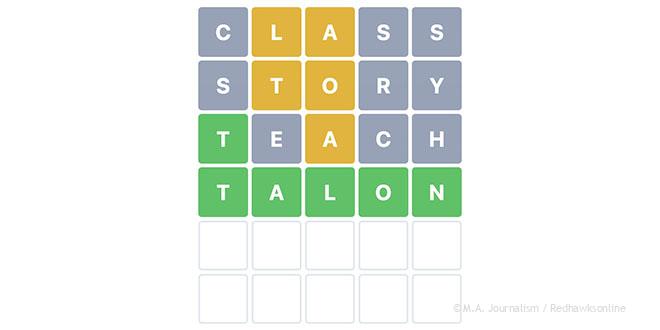Online word and number games are fun, but can they actually help your brain?
Wordle, Strands, Connections, and The Mini. All of these may sound familiar to you and in all likelihood you have played them before. According to Axios.com, just by the start of 2024, the New York Times games had been played over 8 billion times and with the addition of the new popular game strands, those numbers are sure to rise. These games have become tremendously popular and have become many ways to pass time among the students here at Minnehaha.
Sophomore Isaac Anderson is one who plays these games in school.
“It’s the first thing I do every morning, especially to pass time in my least favorite class,” he said. “Also, whenever I finish a test and have extra time afterward, I usually play the Connections or a crossword until the class ends.”
But do they actually benefit you, or are they just for your entertainment? A study was conducted with 19,000 participants mainly aged 50-96 in May of 2019 by Dr. Anne Corbett from the University of Exeter Medical School in England. It said that playing online word puzzles such as Wordle are shown to benefit your brain. They may keep your brain younger by delaying many of the negative effects that occur later in your life by as much as 10 years. This may be helpful if you want to stay functioning like a younger person even as you start to age.
You may say that these tests don’t apply to you because they were studied on the elderly. But that same test found that even in younger people, these games can increase your attention span and may also decrease your risk of dementia later on in your life. These games may also increase vocabulary because these games may have words you may not know.
Anderson believes these games can expand his vocabulary as well.
“When I’m playing Wordle and the word is a word I don’t know, I usually search up the word to see the definition,” he said.
These games may also increase the time your brain may function well. The Harvard Medical school conducted a test that said that playing games such as the New York Times games are shown to stimulate your brain which can increase communication in brain cells and maintain a healthy brain for a longer time amongst all ages.
Not only do these games just help your brain but they can also build communities and create friendships. With the high amount of players, you are sure to see other people around the school playing these games.
First-year Harry Kirkpatrick is one of the players here at Minnehaha and he says that he sees other people around the school that he can talk to while he plays the games.
“Seeing people playing these games fuels relationships with classmates,” he said. “It makes me want to compete and sometimes we will race to complete the game first.”
These New York Time games are sweeping the world and building Connections. (Get it) And these games aren’t dying anytime soon. (In fact as I am writing this, a fellow student is playing these games rather than writing their story)
“I believe that these games are fun yet beneficial and are helping me to build friendships,” said Kirkpatrick.

